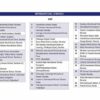Clearing Waqf corruption & confusion
– Mohammad Sajjad is Professor, modern and contemporary Indian history, Aligarh Muslim University
Against the backdrop of the Waqf Management, Empowerment, Efficiency, and Development Bill 2024 having been referred to a JPC, the author proposes ways and means to fortify it
With tabling of the United Waqf Management, Empowerment, Efficiency, and Development (UMEED) Bill 2024, in Parliament — since referred to a Joint Parliamentary Committee (JPC) for further examination — India’s 32 Waqf Boards have come under public scrutiny. They reportedly control 8.7 lakh properties spanning 9.4 lakh acres countrywide.
Linguistically, the word Waqf (tied-up or locked up), also known as habs (locking, selling and purchase of assets earmarked as charitable endowments), or mortmain property, is an inalienable charitable endowment under Islamic law. Typically, it involves donating real estate — land and buildings — for Muslim religious or charitable purposes with no intention of reclaiming the donated assets.
It’s important to note that a large proportion of Waqf property comprises graveyards (Qabristan) which don’t yield any income. Some paltry (mostly oral and unregistered) Waqf assets are owned by village/mohalla mosques (which are maintained through meagre or no incomes). These “assets” add to the corpus of Waqfs, but don’t yield any income. This is a point the Sachar Report (2006), which highlighted the poverty of India’s Muslim minority, failed to note. However it revealed that, “There are more than 4.9 lakh registered Waqfs (with estates and assets) spread across the country but the current annual income from these properties is only about Rs.163 crore, which amounts to a meagre 2.7 percent rate of return…. The current… market value (income generated) from Waqf properties can be put at Rs.1.2 lakh crore.”
Misgivings about the Waqf Bill 2024. The proposed Bill challenges exclusive Muslim composition of the Waqf Boards as mandated by the Waqf Act 1995. It proposes to abolish the power of (provincial/state government) Waqf Boards to issue notices or hold enquiry into the ownership of property that it believes belongs to a Waqf. Another misgiving is that the mutawallis (managers/administrators) are obliged to transfer their power to District Collectors. Moreover, the proposed Bill doesn’t address the concerns recorded in the Sachar Report; nor does this Bill propose mandatory digital transparency by displaying all estates and assets of Waqfs on their websites. Another anomaly is that it doesn’t insist upon annual auditing of the income-expenditure of Waqf Boards. Similar legislation for governance of Hindu mutths (with large estates) and mahanths (who practically own and manage the mutths) has not been enacted. The Waqf Bill 2024, therefore, is discriminatory against Muslim institutions.
Overall, mistrust between the Indian state and its Muslim community persists almost perpetually. India’s Muslims have all along been doggedly resisting state interference in reforming Muslim personal laws, and reforming the governance structure of the Aligarh Muslim University which is heavily dominated by certain cliques. Simultaneously, sections of India’s Muslim elites have also been misleading the by preventing initiatives to make necessary reforms from within. Therefore, some reforms need to be incorporated into the Bill.
Establish a Waqf Tribunal. A tribunal with high court rank judges should be established for resolving Waqf cases, with the Supreme Court as the appellate authority.
Enhanced land survey. A Land Survey Commission should be constituted with at least three officers to investigate Waqfs’ real estate.
Mandatory gender and caste representation. The Waqf tribunal’s composition should be diversified with inclusion of women and lower castes.
Digital transparency. The assets, deeds, and real estate records of India’s estimated 490,000 Waqfs should be digitised and made publicly accessible online for transparency. Also, their accounts should be audited by the office of the Auditor and Accountant General.
Promotion of charitable activities. The Bill should mandate that income of all Waqfs is used mainly for establishing modern educational, research and healthcare institutions and for financial assistance to EWS.
Strict penalties for mismanagement. Strict penalties for those who usurp, encroach upon or mismanage Waqf properties, should be prescribed, including imprisonment.
Memorialisation of Waqf donors. Waqf creators and donors (Waaqif) should be remembered and honoured in a befitting manner. They should be honoured with contributions digitised and made available to the public.
Defined roles for mutawallis. The roles of mutawallis (Waqf administrators) should be clearly defined, with tenures fixed at 3-5 years. Eligibility criteria should be established for their appointment.
Accountability mechanisms. A robust checks and balances mechanism should be implemented to supervise the functioning of mutawallis and the Waqf boards.
If the JPC scrutinising the Waqf Bill 2024 debates these proposals to streamline the Waqf affairs and develop the human resource of the minority Muslim community, Muslim resistance to the Bill will surely abate.

















Add comment